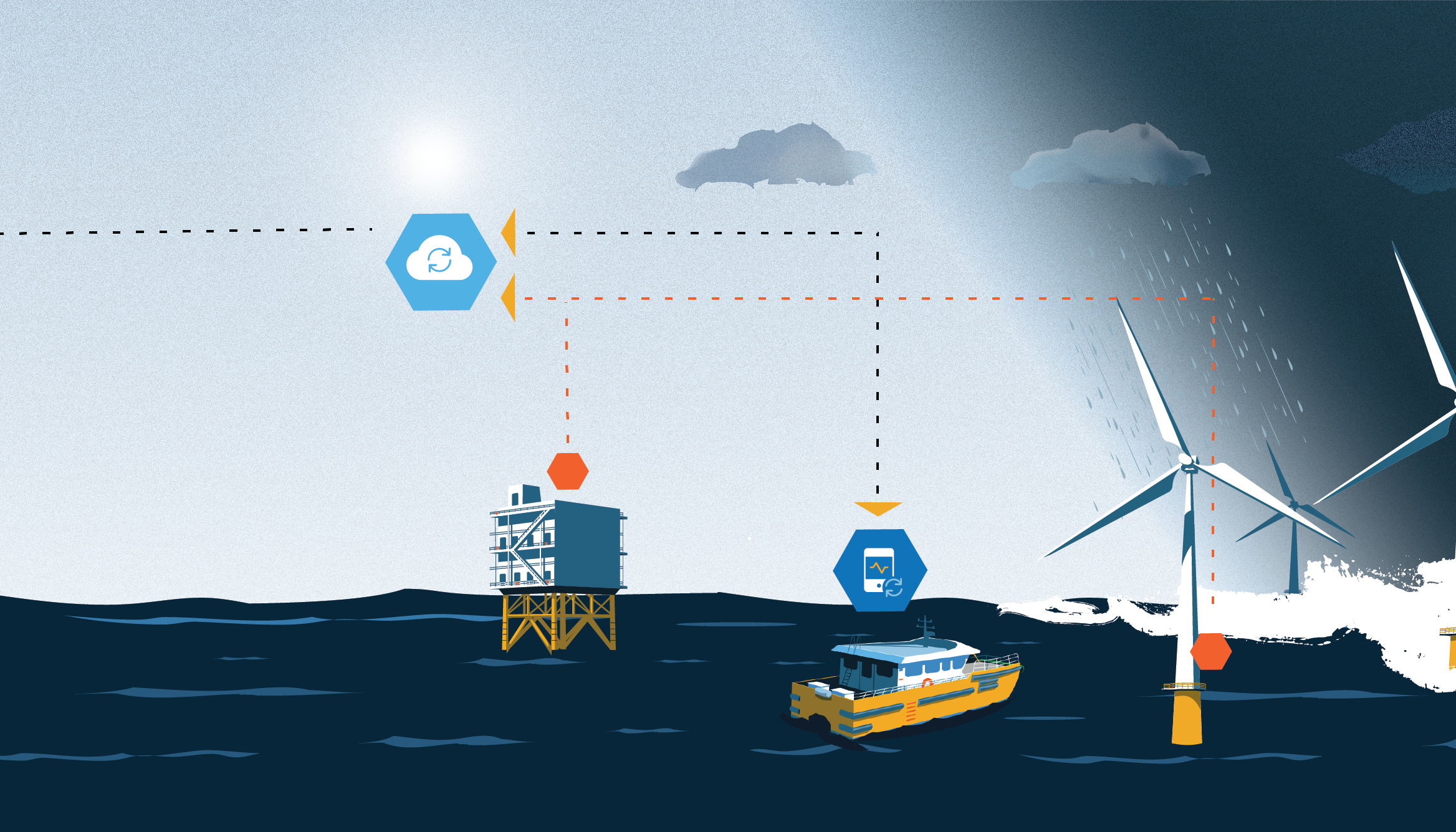The University of Strathclyde, EDF and Miros are working together to research and test the ORACLES (Offshore Renewable ACess Loss Estimation & Safety) forecasting methodology at Teesside offshore wind farm.
ORACLES+ will use a diverse set of operational data to better forecast key access conditions for crew transfer operations. The forecasts will be tested at every stage of the decision-making process, from site supervisor to marine co-ordinator to vessel master and turbine technician, to ensure better vessel dispatch and crew transfer decisions. On a large offshore wind farm site improved operational decision-making could deliver financial benefits in excess of £1m a year.
The project, jointly funded by The Data Lab Innovation Centre and EDF, will involve a Miros wave radar being fitted to a Teesside offshore wind farm turbine, and Miros’ cloud will be used to present the ORACLES metrics to key decision makers throughout the decision-chain. This study will run for a year, which will allow the operational teams to provide feedback on forecasts with respect to their day-to-day work.
University of Strathclyde Project lead, Dr David McMillan explained: “We are excited to be carrying out this research at EDF’s Teesside offshore wind farm in a live demo of ORACLES. The wind industry needs some further tangible operational cost reduction use cases to further drive down the cost of offshore wind, and we are hopeful to deliver one within ORACLES+.”



























